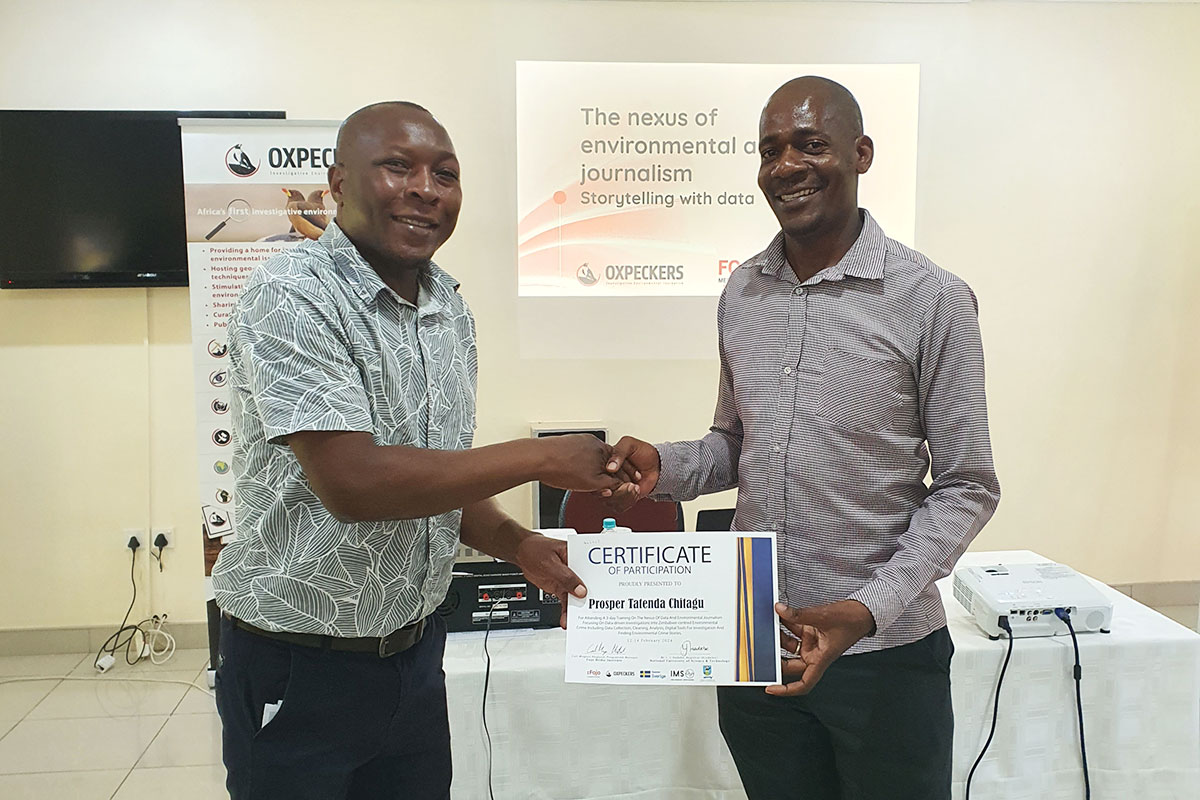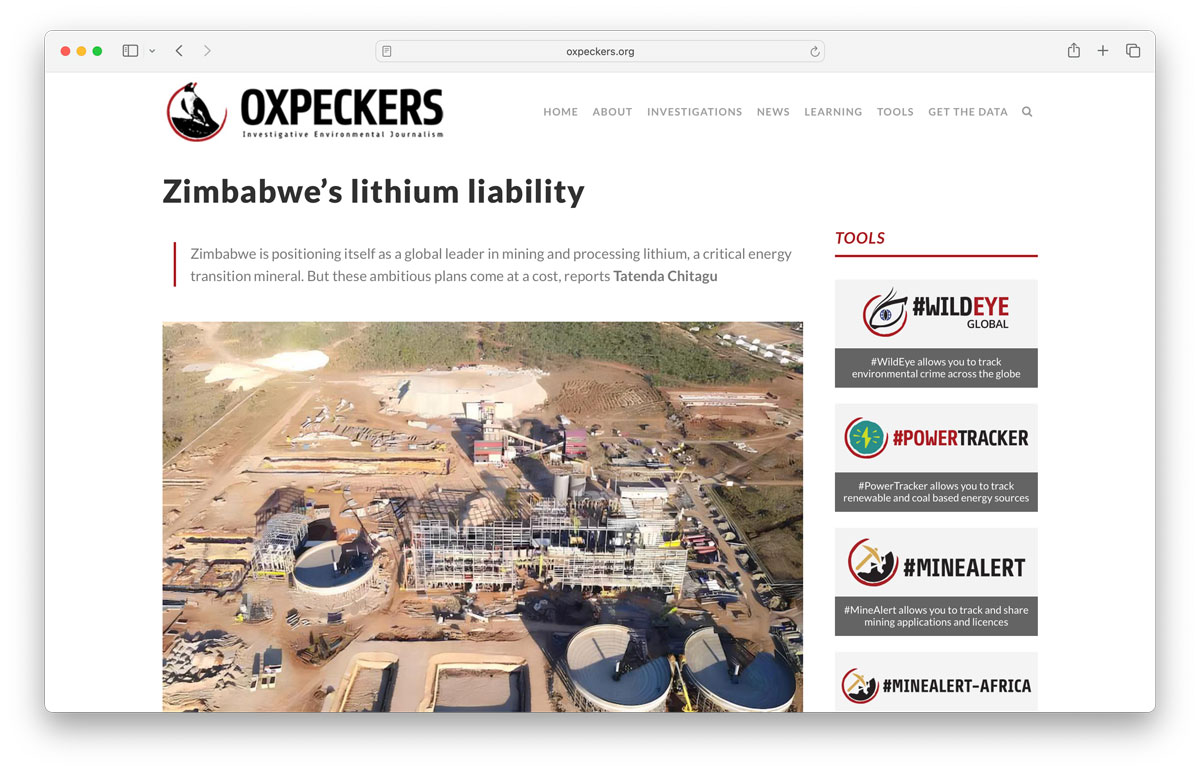Zimbabwe is one of the African countries most affected by the Western world’s need for natural resources. Through a Fojo-supported project, freelance reporter Tatenda Chitagu together with the organisation Oxpeckers was able to reveal how a Chinese mining company polluted the water sources of the local population. When the authorities heard about the reporting, they opened a case that resulted in hefty fines for the mining company.
Bikita Minerals in the southern province of Masvigo in Zimbabwe is one of the world’s largest lithium mines and was bought in 2022 by the Chinese company Sinomine Resource Group. A few years ago, the population in the vicinity of the mine began to complain that the fish they fed on disappeared and that several water sources in the area dried up.
Local freelance journalist Tatenda Chitagu began investigating. He was one of six journalists who, through the Oxpecker projects PowerTracker and WildEye, learned to work with data-driven journalism mainly in the climate area.
“I have been doing climate and environmental journalism for the past three years. In this Oxpeckers project, I got editorial handholding and mentorship from the editors, but most importantly I got to learn to be thorough, balanced and fair as well as dig for data to use in my story. I also learnt how to collect data, analyse and visualise already existing data,” says Tatenda Chitagu.
Oxpeckers Center for Investigative Environmental Journalism is an organisation that combines traditional investigative journalism with data analysis and geo-mapping to shed light on climate crimes and track down criminal organisations. The organisation is non profit and they usually work on specific projects with external funders – for example Fojo.
“PowerTracker and WildEye are two examples of how we work, where we built a tool that can track projects for renewable energy and decommissioning of coal power plants in Sub-Saharan Africa,” says project manager Roxanne Joseph.

“Oxpeckers was founded in 2012 by Fiona Macleod after she received a grant during GIJC 2011/21012 (Global Investigative Journalism Conference). We conduct training courses and after one of these the course participants had to pitch their stories to us. We selected six of them to be our grantees under the PowerTracker project.”
And it’s not just the Bikita Minerals story that’s been published – three more stories have been published as a result of successful digging and mentoring: a report on mismanagement in the environmental administration in Zimbabwe, an article on poachers and coal mining in Matabeleland province, and an audit showing how the electricity shortage leads to an illegal market for carbon that increases the deforestation of important rainforest.
“We publish everything on our site under a Creative Common license, which means that others can also publish our texts if they give credit. For example, the Bikita Minerals story was also run on the Zimbabwe Broadcasting Corporation (ZBC) and the state-run The Chronicle,” says Roxanne Joseph.
Facts
- Oxpeckers publishes all its material online on its own site Oxpeckers.org and with other established media houses.
- The reach of their social media is roughly 375,000 people.
- The six journalists who became grantees under the Fojo-supported PowerTracker project were Tatenda Chitagu (freelance), Mandla Tshuma (freelance), Nokuthaba Mathema (Harare Polytechnic), Nqobile Tshili (Chronicle) and Nkosana Vuma and Yolanda Moyo from the Zimbabwe Broadcasting Corporation.




